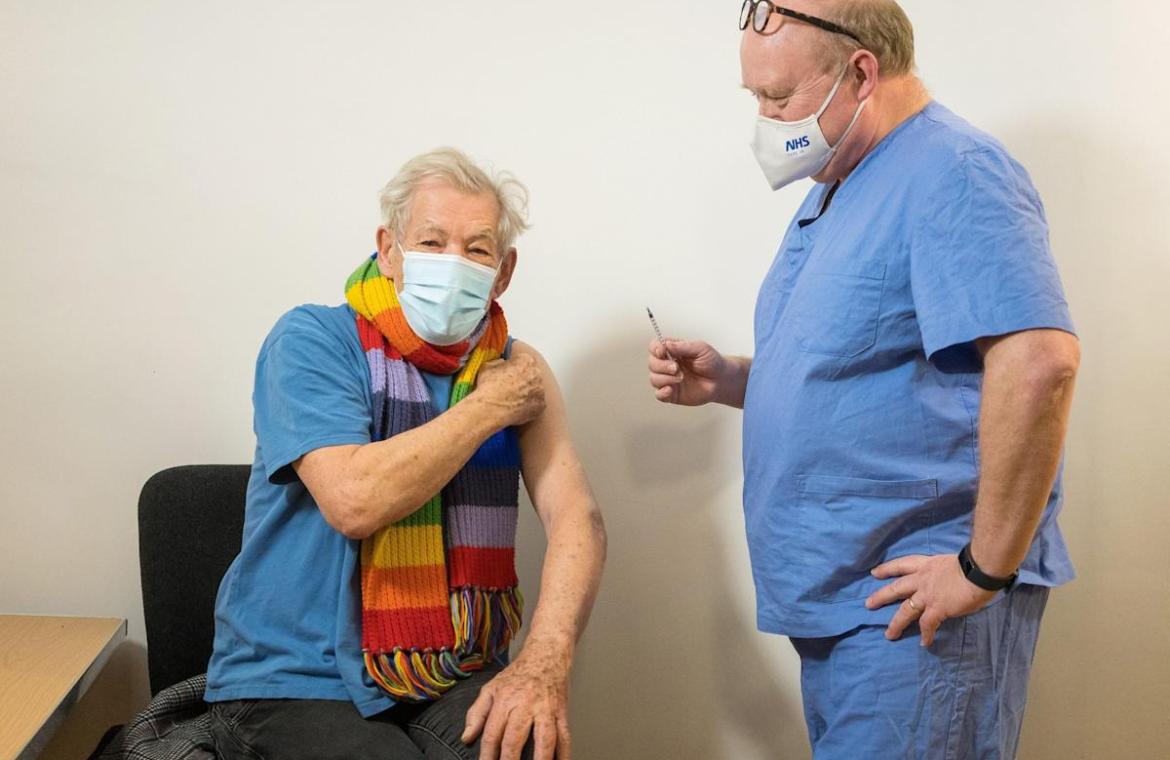The actor Ian McKellen receives the Pfizer-BioNTech COVID-19 vaccine in London on December 16. Jeff Moore/Handout through Reuters
Pfizer’s top scientist stated it selected a comparatively low COVID-19 vaccine dose to minimize side results.
Pfizer’s vaccine has 30 micrograms of mRNA, the energetic ingredient. Moderna’s has 100 micrograms.
Both vaccines produce related side results, in accordance to the CDC.
See extra tales on Insider’s enterprise web page.
Pfizer’s top scientist defended the dose of the energetic ingredient within the firm’s COVID-19 vaccine, which is lower than in Moderna’s vaccine.
Pfizer’s COVID-19 vaccine has 30 micrograms of mRNA, whereas Moderna’s has 100 micrograms. Scientists have speculated that this could possibly be a motive Pfizer’s shot produced a lower antibody response than Moderna’s in latest research.
Philip Dormitzer, Pfizer’s chief scientific officer, instructed the Financial Times on Wednesday that Pfizer and its codeveloper BioNTech “used the minimum dose level” to get an immune response that was stronger than catching COVID-19.
Dormitzer added that a increased dose might need risked extra side results.
“If you look at what’s going on with all the COVID-19 vaccines out there, the derailer has often been adverse events that have cropped up,” he stated.
Pfizer’s and Moderna’s COVID-19 vaccines produce related side results, in accordance to the Centers for Disease Control and Prevention. They can embody arm ache, soreness, and redness; muscle aches; fatigue; and fever.
The CDC has stated that a kind of coronary heart irritation referred to as myocarditis is an “extremely rare” side impact of each vaccines that resolves shortly.
There have been reviews of so-called Moderna arm, an indignant crimson rash that seems after getting Moderna’s shot and goes away on its personal. Insider contacted Moderna for remark however did not instantly obtain a response.
In the US, suppliers have given extra than 214 million doses of Pfizer’s shot and 147 million doses of Moderna’s, in accordance to the CDC.
Moderna’s shot boosted antibodies increased than Pfizer’s in some research
Story continues
A research of 1,600 Belgian well being employees revealed as a analysis letter within the Journal of the American Medical Association on August 30 discovered that Moderna’s COVID-19 vaccine produced twice as many antibodies as Pfizer’s at six to 10 weeks after vaccination.
The authors stated that the upper mRNA ranges in Moderna’s vaccine and a longer interval between doses “might explain this difference.”
A research from the University of Virginia revealed as a analysis letter in JAMA on September 2 discovered no distinction in antibody response amongst age teams with Moderna’s vaccine however a lower antibody response in individuals 50 and older with Pfizer’s. The researchers stated that the variations may relate to the quantity of mRNA within the vaccines.
The antibody response is only one facet of the immune system, and the antibody stage wanted to defend in opposition to COVID-19 has not been established.
Vaccine safety additionally relies on whether or not the antibody response adjustments over time. For instance, a latest research from Oxford University discovered that at 4 months, Pfizer’s and AstraZeneca’s vaccines produced related ranges of antibodies. The antibody ranges from Pfizer’s shot had waned, whereas the degrees from AstraZeneca’s remained the identical, the researchers stated.
Real-world knowledge from Canada earlier this yr discovered that after one dose, Pfizer’s vaccine was 56% efficient in opposition to symptomatic COVID-19 brought on by the extremely infectious Delta variant, whereas Moderna’s was 72% efficient.
Other elements may have influenced the outcomes, together with that Pfizer’s vaccine had sometimes been given to older individuals, who have a tendency to produce weaker immune responses. That research hasn’t been scrutinized by specialists in a peer evaluation.
Read the unique article on Business Insider








